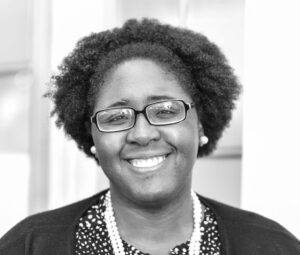
Winning Students’ Trust by Decolonizing the Classroom
PAYING ATTENTION
I try to work it in casually, inconspicuously, but of course it is glaring. Students notice it immediately – the emphasis on a student’s progress instead of grades, the focus on their and my mental wellness as the primary means to be sharpest in learning, the inverting of power dynamics and the undoing of traumatizing power relationships in how the classroom is run.
My body notices it, too. Decolonizing the classroom is difficult work and wildly unfamiliar territory. It runs directly in the face of what we instructors and professors know the classroom to be. And it runs directly to our worst fears and insecurities and does an elaborate dance around it – but not in a taunting way. It dances freely in a spirit of welcome and joining. A decolonized classroom, this liberating means of being communal learners together, requires constant movement. And truth-telling, where everyone names their fears. Students locate themselves in the learned cycle of education where their performance is assumed to dictate their worth. And instructors and professors work hard to resist the shameful impulse to agree. For this uneven correlation is all we know: performance is worth. Worth is performance. But is worth the performance?
Decolonizing work requires an intense amount of internal resistance, of re-narrating what we have been trained to recognize as true, as opposed to what we may instinctually know to be true.
Education can be ruthless at worst, engrossed in its unmoving standards at best. Instructors and professors know this all too well:
“How else, besides grading, are we supposed to measure progress?”
“How else will students take us seriously?”
“How do we ensure students prioritize their coursework?”
“How do we make sure our assignments do not take a back seat to another’s class or to a student’s ministry or to the ups and downs of their life?”
This is the academic-body’s response to fear: rhetorical questions willing to gently carry our insecurity, for we honestly do not know the answer to these questions.
And we may never know until we experiment with inverting power in our course structures. And failure. We need to try failure – again and again. And once we are accustomed to failing, to feeling like we are losing our grip on the notion of rigor we were trained to recognize – by sight, or by the all-too-familiar tightness in our chest - we can ask what lesson(s) failure has been trying to teach us all along.
We instructors and teachers must become disciples of our failures, insecurities, and fears. Because it almost feels unbearable to not be liked or to feel misunderstood or to sense disrespect.
But a decolonial classroom asks the instructor/professor what the lessons are:
What messages of community and communal learning are thrust to the fore when the body struggles with varying messages of acceptance?
In actively shifting the purview, the how and who, of learning, what might be able to be seen and understood differently?
In a world inundated by systems of dominion and domination, mastery and expertise, often ignorant of the fullness or complexity of a person, what might a holistic form of respect look like?
It has to be felt in the body. There is no way around it.
We will only get pieces, as a common complaint is that we cannot be everything to every student. This much is true; but even in recognizing this expansive truth, expanding our sense of resisting strictures is still a lesson well-learned.
HOW TO GAIN TRUST IN THE CLASSROOM
Dear instructor/professor,
How do you feel?
It is only from here, the space of feeling, that decolonial possibility in the classroom can be born.
It is not method. It is not strategy or project. It is a return to humanity, it is still-unfolding fullness. The process of learning happens to occur in the midst of a collective space where humans are learning how to be appropriately human together. Your decades of study does matter; but what matters most is your decades of living.
Does your living have room in your classroom?
This is decoloniality; it is a (means of) living into.
To be decolonial means treating people like humans - not objects, or projects, or cogs in a machine - but like their life is beautiful and important and lovely.
When instructors/professors begin to get a hold of this – first by addressing our fears, and next by allowing space for our pedagogical dreams to blossom and run a bit freer, then and only then can we broach the conversation and winning students’ trust.
Leave a Reply